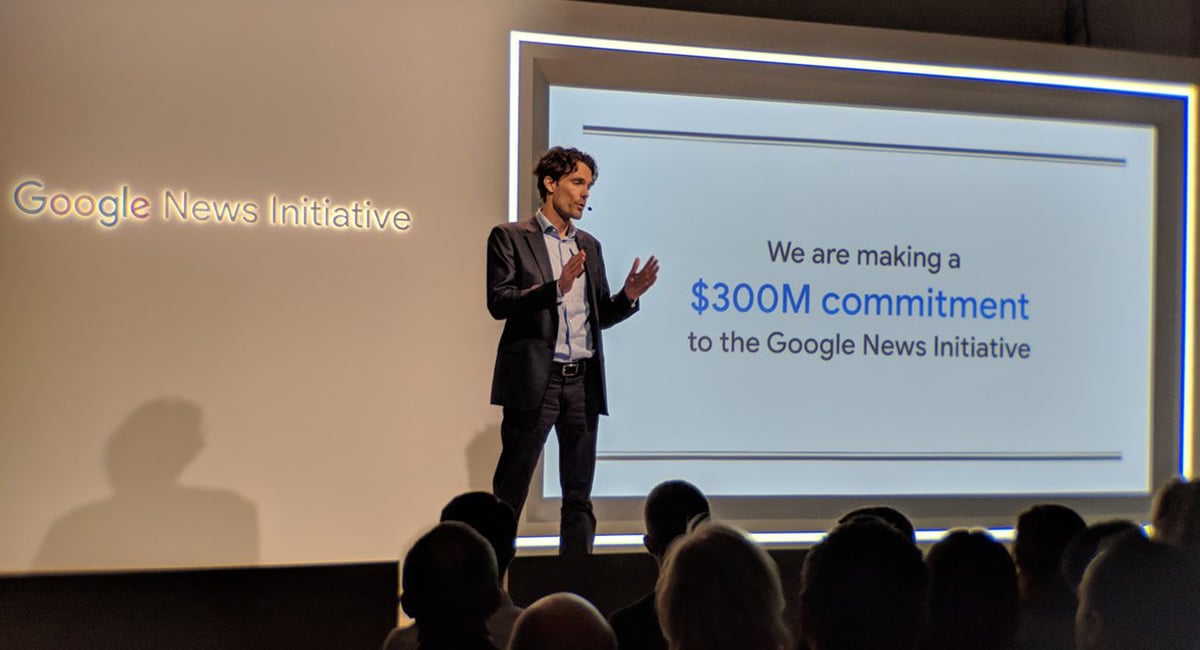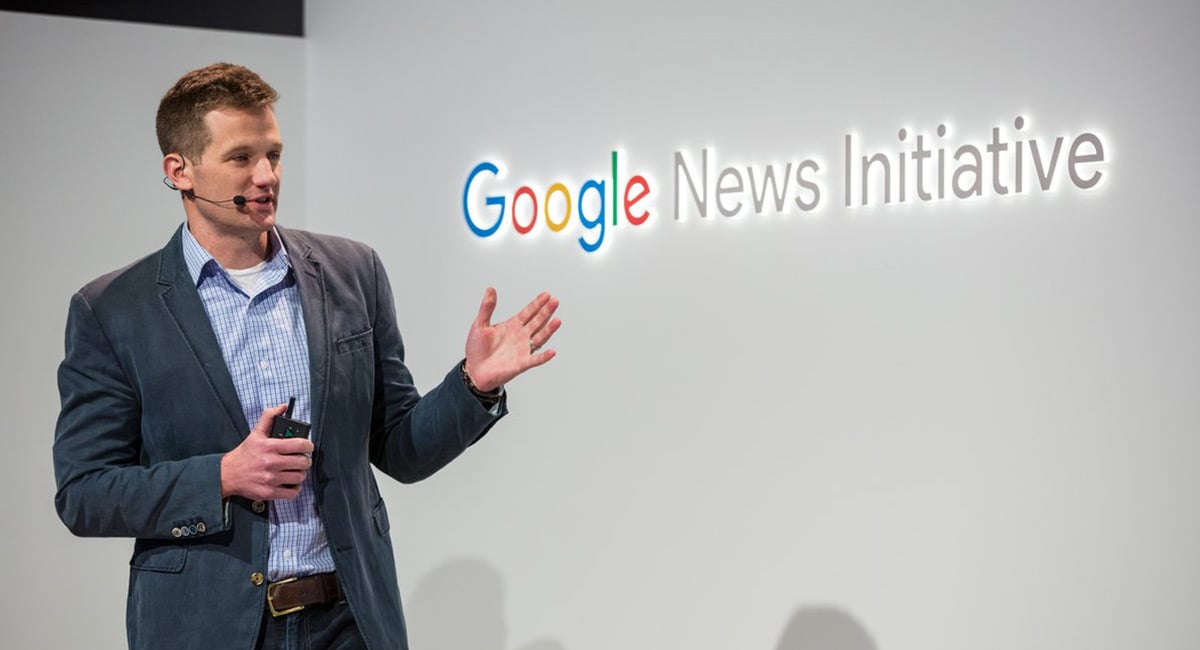Google News Initiative (GNI) has been launched in New York with the tech giant calling it a major milestone in Google’s 15-year commitment to the news industry.
Google said GNI represents its largest company-wide effort to help journalism thrive in the digital age.
“It brings together everything we’re doing with the news industry under a single initiative to support quality independent journalism, financial sustainability, and development of new technologies that drive innovation.
“We’re investing $US300 million globally over 3.5 years to energise all of our collaborations, and to lay the foundation for new products and programs for a diverse set of news publishers, to benefit the entire ecosystem. The $300 million funding expands our long-term commitment to the news industry and will allow us to support multiple initiatives across products, partnerships and programs for a diverse set of news partners.
“This investment will fuel our efforts with the GNI around quality journalism, financial sustainability, and technological innovation. It will be based on industry and partner needs, not Google’s short-term interest. And it will be rooted in experimentation, preserving flexibility every year so we can shift allocations based on learnings.
“We will also expand our Product Working Groups globally, to provide publishers an important role in shaping Google’s product direction, commercial approach and overall strategy to meet the needs and challenges of the industry as a whole.”

Google’s Chief Business Officer, Philipp Schindler
A Google statement released these GNI details.
GNI will advance solutions in three major pillars:
• Quality Journalism – We’re elevating and strengthening quality journalism on all our platforms.
• Surfacing Quality, Authoritative Information – Improving our algorithms to more heavily weight results towards authoritative sources over relevance or freshness. These changes are being echoed at YouTube, which will also highlight its “Top News” shelf as a place to find relevant content from verified news sources.
• Disinformation Lab – To combat mis- and disinformation during political cycles, we’re supporting our partner First Draft with the launch of a Disinformation Lab. Based at the Shorenstein Center at Harvard, it will employ computational journalists who will monitor the issue during elections.
• Digital literacy campaign – Launching a US$10 million campaign funded by Google.org to support global digital information literacy. Our first project is a US$3 million project called MediaWise to give a million teens in the US the skills they need to separate fact from fiction online.
• Synthetic media – We’ll release datasets that can be used by academics working to train detection models of synthetic voice and video media (content that has been digitally altered).
• Financial viability – We’re helping publishers diversify revenue streams to drive high-growth business models with both advertising and subscriptions.
• Subscribe with Google – a comprehensive platform to help publishers convert readers into subscribers and keep them engaged across Google and the web. People can use their Google account to subscribe and stay logged-in, so they can easily access their paid content on Google.
Subscribe with Google is available now for any publisher who wants to sign on and implement this capability on their web properties or on their AMP pages. We’re launching with partners including The New York Times, the FT, Fairfax in Australia and Mainichi in Japan, who have signed on to implement Subscribe with Google in the coming weeks and months.
• News Consumer Insights – A dashboard built on top of Google Analytics that helps news organisations understand their audience through a subscriptions-oriented lens and compare their performance against a competitive benchmark populated by 1,000 global publishers.
• Propensity to Subscribe – Signal-based on AI models in DoubleClick that will help publishers predict in a privacy-safe way WHEN and WHY a reader is likely to pay for the content on their website. Testing with Hearst Newspapers, Espresso, and the Washington Post.
In addition to the GNI, Google made the following announcements:
• Australia & New Zealand Training and Partnerships
• Launch of Google News Lab in Australia & NZ
Google will begin the search for a new lead for the News Lab in Australia and New Zealand shortly.
The News Lab recently launched in APAC and, based on the strong response in Australia and NZ, Google will be expanding to add a lead here who will drive our editorial training and partnerships across both countries.
• New Technology – Google is empowering news organisations with technology for innovation in news organizations.
• Google Cloud for News – giving small and midsize news organisations around the world G Suite and Google Cloud Platform credits, training and support for free.
• Pilot of Bulletin – Trial a hyper-local/micropublishing tool in two US cities (Nashville and Oakland) for people to capture and share news on the web and/or via social media.
• Outline from Jigsaw – an open source tool that acts like a purpose-built corporate VPN to let journalists safely access the internet and keep their communications secure.
• AI tools for journalists – tools for reporters that use machine learning to help reporters in their work, from transcribing audio and video interviews easily, cleaning up data sets, and finding patterns and stories in data sets.
• AMP Stories – a new open visual storytelling format build on AMP.
Top photo: Steve Grove, Director of Google News Lab
